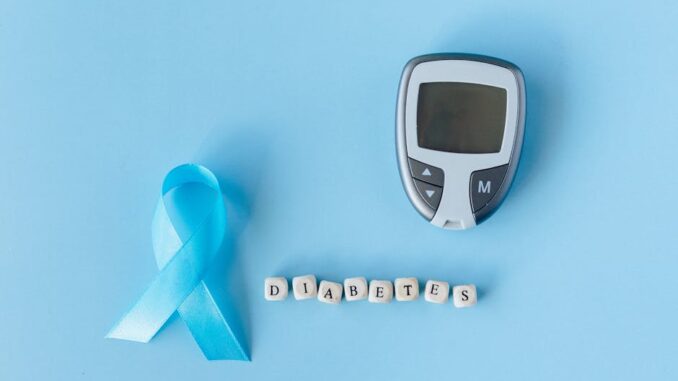
Summary
This article explores five common medications known to elevate blood glucose levels, a crucial consideration for individuals managing diabetes. We delve into how these medications impact blood sugar, potential risks, and steps to mitigate these effects. Finally, we will discuss the importance of open communication with healthcare providers for informed decision-making regarding medication management and diabetes care.
** Main Story**
Alright, let’s talk about something crucial for anyone managing diabetes: medications that can unexpectedly mess with your blood sugar. We all know diet and exercise are key, but sometimes, even when you’re doing everything right, certain drugs can throw things off balance. And frankly, it’s something we need to be extra aware of heading into 2025.
So, let’s dive into five common medications that can act as sneaky culprits:
1. Corticosteroids: A Bit of a Catch-22
Think prednisone or dexamethasone. These are powerful anti-inflammatories, often prescribed for conditions like asthma or arthritis. They’re lifesavers in many situations, no doubt. However, they also pack a punch when it comes to blood sugar. Corticosteroids essentially tell your liver to pump out more glucose, while simultaneously making your body less sensitive to insulin. Not ideal, right?
Risks and What You Can Do: The higher the dose, usually, the bigger the spike. So, if you’re on these, vigilant blood sugar monitoring is non-negotiable. Your doctor might need to tweak your diabetes meds or suggest some lifestyle adjustments. I remember when my grandfather was prescribed prednisone for a bad flare-up of his arthritis, his blood sugar went through the roof; a real wake-up call for our family.
2. Thiazide Diuretics: Balancing Act
These are typically used for high blood pressure, like hydrochlorothiazide (HCTZ). The issue is that, especially at higher doses, they can also nudge your blood sugar upwards. They work by impacting insulin secretion and promoting resistance, a double whammy for those with diabetes.
Risks and What You Can Do: If you’re taking these and your blood sugar control becomes a real struggle, it’s time to have a serious chat with your doctor. Perhaps there are alternative blood pressure meds that are a better fit for you, it’s worth exploring isn’t it.
3. Atypical Antipsychotics: A Complicated Relationship
Essential for managing conditions like schizophrenia and bipolar disorder, these medications, like olanzapine and clozapine, are invaluable. But, and there is a but, they can sometimes trigger significant blood sugar spikes. It’s not entirely clear why this happens; though experts think it might involve changes in insulin sensitivity and increased appetite. The truth is it’s still not known exactly, is it?
Risks and What You Can Do: If you’re on these medications, frequent blood sugar checks are a must. Your healthcare provider may have to adjust your diabetes treatment or recommend lifestyle changes to help keep things stable. It’s all about careful monitoring and proactive management.
4. Beta-Blockers: Heart Health, But What About Your Blood Sugar?
Frequently prescribed for heart issues, some beta-blockers, like atenolol and metoprolol, can raise blood sugar. They mainly do this by reducing insulin secretion and possibly masking the symptoms of low blood sugar. That said, newer beta-blockers, such as carvedilol, have a gentler effect on blood sugar and might even offer some protection.
Risks and What You Can Do: If you have diabetes and need a beta-blocker, discuss the different options with your doctor. Choosing the right one can make a big difference in your blood sugar levels. It’s a conversation worth having, trust me.
5. Niacin: Cholesterol Control with a Caveat
Niacin, or vitamin B3, is sometimes prescribed to help lower cholesterol. Problem is, it can also elevate blood sugar and even increase the risk of developing type 2 diabetes, especially at higher doses. A classic example, of a risk and benefit analysis.
Risks and What You Can Do: Statins are often preferred for cholesterol management because they pose a lower risk to blood sugar. If niacin is absolutely necessary, make sure you’re closely monitoring your glucose levels. So do you understand?
Communication is Key
Ultimately, managing diabetes alongside other conditions means being extra careful about medication interactions. Inform your doctor about everything you’re taking – prescriptions, over-the-counter meds, supplements – the lot! This way, you can work together to minimize the risk of blood sugar spikes and ensure you’re managing both your diabetes and any other health issues as effectively as possible. After all, it’s your health, and you deserve to be in the driver’s seat.


So, basically, our bodies are just giant chemistry sets waiting to be thrown off by a rogue vitamin B3? Sounds like 2025 will be the year we all become amateur endocrinologists. Bring on the blood glucose trackers!
That’s a great analogy! It’s definitely empowering to understand how medications impact our blood glucose. Blood glucose trackers are going to be vital in 2025! Maybe we’ll all be sharing our data and finding new correlations. Thanks for the comment!
Editor: MedTechNews.Uk
Thank you to our Sponsor Esdebe